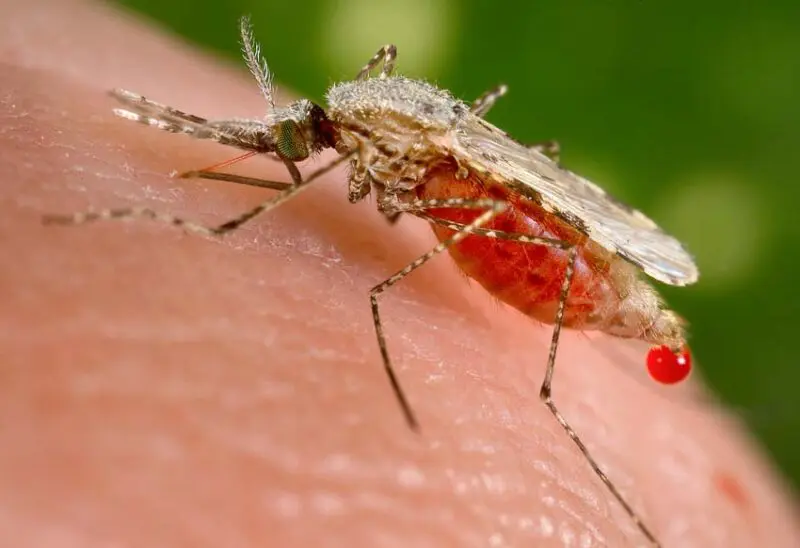Mosquitoes are one of the most annoying pests out there, but what’s even worse is that they’re known carriers of deadly diseases. With cases of dengue fever and other mosquito-borne diseases popping up all over the world, we wanted to explore some ways to provide relief from these annoying insects so you can enjoy your outdoor space in peace. Without further ado, let’s look into ways to get rid of mosquitoes once and for all.
How to Get Rid of Mosquitoes Indoors
While mosquitoes have mostly live habitats, they have been known to head indoors to wreak havoc. If you’re dealing with an indoor case of mosquitoes, they may be breeding in dark, damp areas in your home.
The best way to get rid of them is to eliminate mosquito breeding sites indoors. You can use traps and repellents to keep them from biting you while you’re asleep or relaxing.
How to Eliminate Mosquito Breeding Sites Indoors
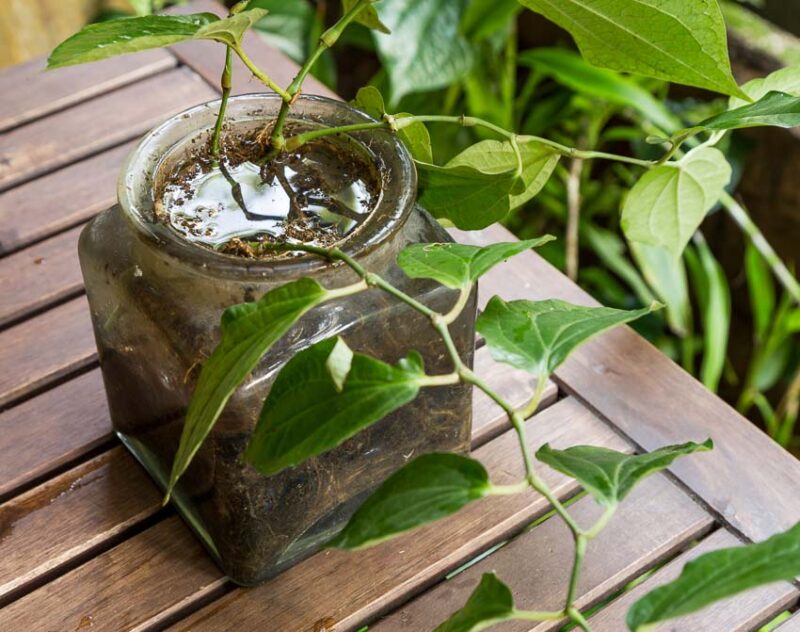
Can mosquitoes breed indoors? The answer is yes. Female mosquitoes (which are the ones that bite mammals) live to be around 40 to 50 days old. They are drawn to dark and humid areas, so if your basement, attic, or bathroom are not kept in check, mosquitoes may move in and set up shop.
Even though they’re more of a problem outdoors, they can make life miserable if they enter your home. It’s vital to ensure they aren’t breeding.
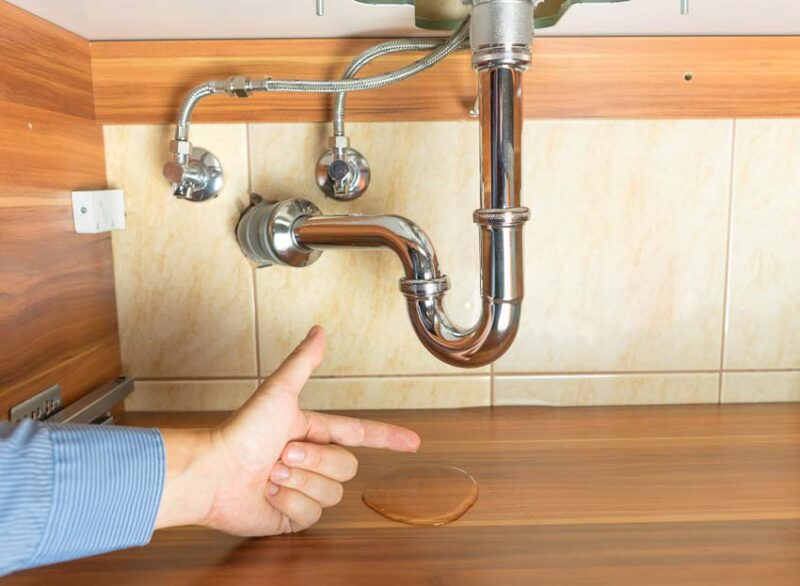
Use these tips to eliminate any mosquito breeding areas:
- Throw out (or clean and dry) any container in your home that holds water. This includes vases and houseplant saucers.
- Flush out P traps, especially in sinks that aren’t used frequently, by pouring a bucket of water down the drain.
- Indoor water features are common mosquito breeding sites. Turn off the water feature if mosquitoes are breeding around this area.
- Check under sinks, toilets, and tubs to ensure there are no leaks.
Another way to make mosquitoes less comfortable is to circulate your air with fans or air conditioners. Mosquitoes can’t fly in strong winds, so they will likely hide in corners away from the airflow.
How to Get Rid of Mosquitoes Using Indoor Repellents and Traps
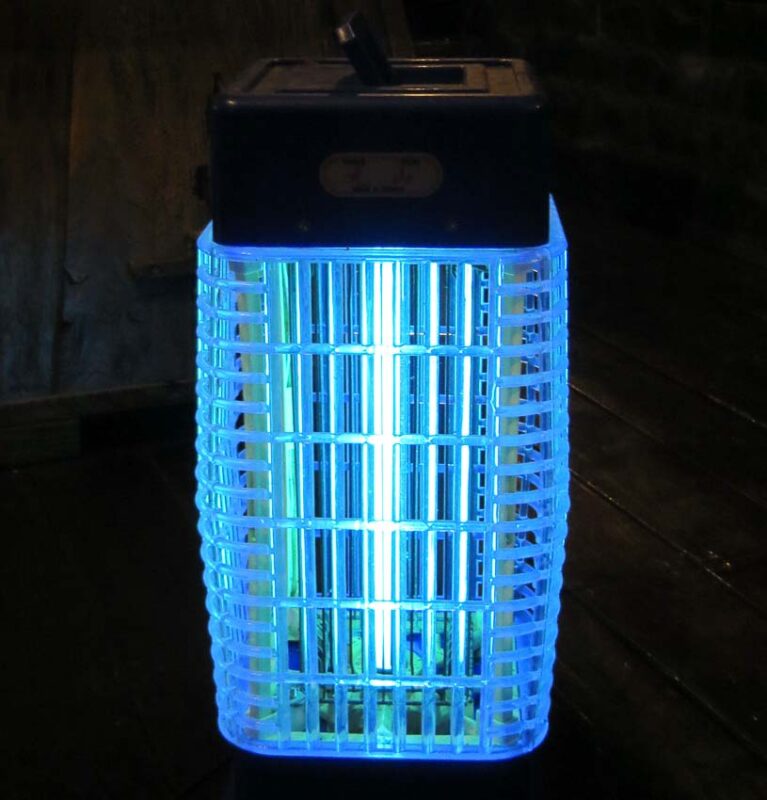
There are several methods that can help trap or repel mosquitoes if they have made their way into your home. Try some of the following methods to see which one works best for you.
Bug Zappers
Bug zappers are great tools for indoor pest control, including for mosquitoes. However, they aren’t the best option for outdoor use since they kill insects indeisriminately.
Electric Fly Swatters
A handheld electric fly swatter makes it easier to kill mosquitoes (and other pests) on contact. They’re safe to use and usually only require a couple of AA batteries.
Lavender
Lavender is a scent that repels mosquitoes. You can use lavender candles, essential oils, and incense to control mosquitoes while making your home smell better in the process. Keep in mind that some scents may be harmful to pets, so do your research before using lavender around them.
Mosquito Traps
There are tons of different kinds of mosquito traps. You can use ready-made ones that you can buy on Amazon or your local grocery/hardware store.
Alternatively, you can make your own trap using a 2-liter bottle, a cup of warm water, some bread yeast, and a little bit of sugar.
Preventive Measures
Seal up all possible entry points to prevent mosquitoes from entering your home while you’re trying to eliminate them. They can still find their way inside when doors and windows are open, but you should try to stop them where you can.
Make sure any open windows have secure screens to prevent mosquitoes and other pests from entering. If your front door doesn’t have a screen, you can get an inexpensive magnetic screen door as a temporary fix if you plan on keeping it open.
Preventing Mosquito Infestations Outdoors
Controlling mosquitoes outside may seem like an impossible task, but if they are affecting the ability to use your yard, it’s time to take action. Once you start tackling your mosquito problem, you’ll be surprised at how effective these measures can be.
Removing Mosquito Breeding Areas Outdoors
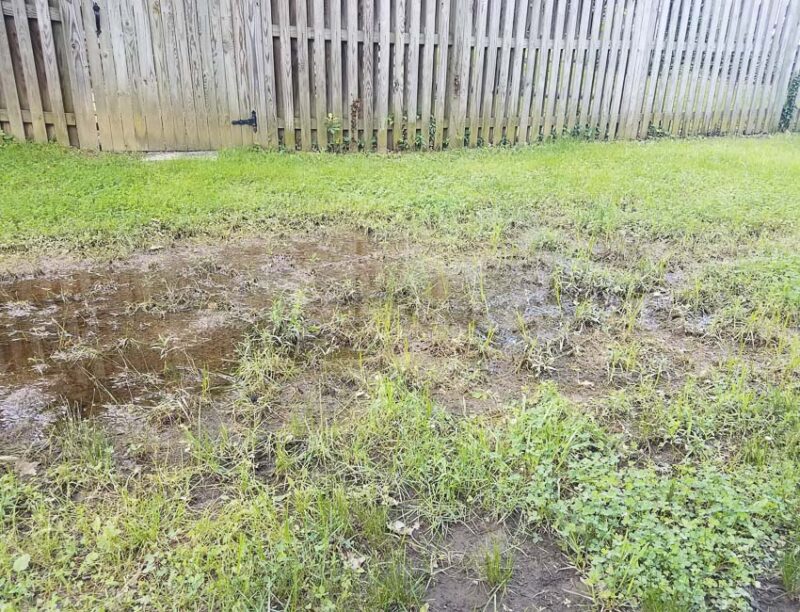
As you may have guessed, controlling mosquitoes outside your home is far more difficult than it is inside. Mosquitoes need very little water to breed, so any amount poses a threat to you safety.
Even containers that have previously held water and then dried out may contain mosquito eggs that can hatch when they fill back up with water.
You can make a big dent in the mosquito population by addressing some common problems in your yard:
- On a weekly basis, remove or empty and scrub any item that holds water, like buckets, planters, toys, old tires, bird baths, and trash containers
- Cover any open rain barrels and water cisterns with a screen too small for adult mosquitoes to pass through
- Drain pools that are not being used
- Make sure your gutters are cleaned at least twice per year to prevent water from accumulating
- Maintain a regular mowing schedule and allow your grass to dry out between waterings
- Prune trees and shrubs to cut down on shady areas in your yard so standing water can evaporate more effectively
For water sources that can’t be drained, like ponds and rain barrels, you can use a larvicide to prevent mosquitoes from breeding. Mosquito dunk tablets are safe and effective— ones that contain the bacterium Bacillus thuringiensis isrealensis are not toxic to plants, wildlife, pets, or children, instead only targeting mosquitoes.
Outdoor Mosquito Repellents and Control Methods
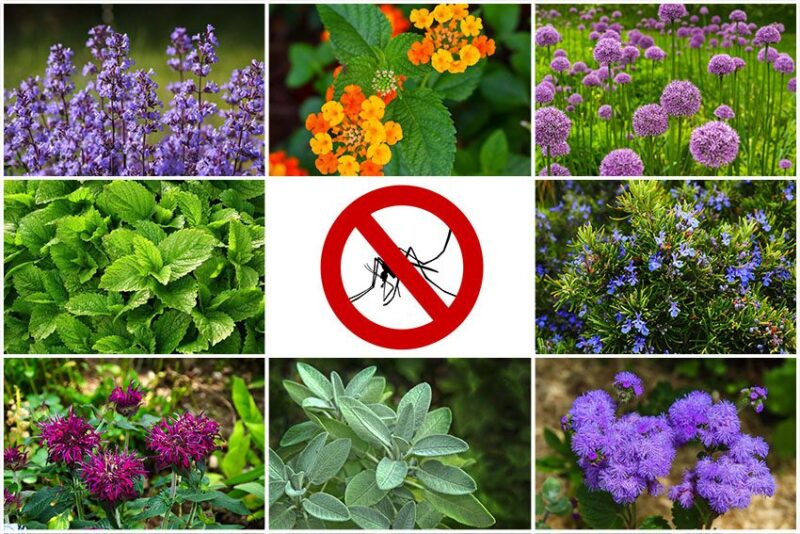
Although there is a lot more area outside than you have inside your home, there is also a wider range of effective methods to control mosquitoes.
Mosquito Sprays for Your Yard
Mosquito sprays are perhaps the best way to get rid of mosquitoes in your yard. You can opt for either natural or chemical sprays. Some are designed to kill mosquitoes while others work by repelling them.
Traps
You can use the same mosquito traps inside your home to control mosquitoes outdoors. Place them around the edges of your property and near potential breeding sources to lure mosquitoes in and trap them.
Natural Plants
There are several mosquito repellent plants that you can incorporate into your landscaping to keep mosquitoes and other pests away. These include but are not limited to:
- Citronella
- Lavender
- Marigold
- Catnip
- Peppermint
- Pennyroyal
- Geranium
- Basil
- Rosemary
- Lemon Balm
- Garlic
Cedar Mulch
Cedar oil naturally repells mosquitoes, and one of the easiest ways to take advantage of it is by using cedar mulch. It also comes in handy to absorb moisture in the areas you place it. Use it around lawn furniture, walkways, and children’s play areas.
How to Get Rid of Mosquitoes Using Natural Predators
Another way to whittle the mosquito population down is by encouraging natural predators, like bats, frogs, and birds.
- Bats eat around 6000 to 8000 mosquitoes every night, and you can set up bat houses on your property to encourage them to live in your yard.
- If you have a pond, make it frog-friendly by creating a natural habitat for them. They like quiet, still water so it’s best to avoid aeration and filtration systems to encourage them.
- Set up bird feeders, bird houses, and bird baths to attract birds to visit your property and eat any lurking mosquitoes
Citronella Candles
While citronella candles aren’t recommended indoors because of their strong smell, they’re great for repelling mosquitoes outdoors. Simply place a few candles around your backyard patio or firepit and light them when you plan on being outside. The smell repels mosquitoes and makes being outside more bearable.
Homemade Mosquito Repellent vs. Store-Bought
Finding the best mosquito repellent can require some trial and error, but mosquito repellents can make being outdoors bearable during the worst times of the year. For best results, use them on your clothes and body, or try using the type of repellent that you spray around your yard.
How to Get Rid of Mosquitoes: Homemade Recipes and Tips

If using chemicals on your skin doesn’t appeal to you, homemade mosquito repellents are a more natural option. These repellents can be made by mixing essential oils with a carrier so you can spray the mixture on your skin, clothes, and surroundings.
Some common carriers that don’t harm your skin include apple cider vinegar, witch hazel, coconut oil, olive oil, jojoba oil, and lemon juice. Another option is to use isopropyl alcohol diluted with equal amounts of water.
In a cup of your chosen carrier, use around 40 drops of a combination of the following essential oils:
- Tea tree
- Eucalyptus
- Lemongrass
- Lavender
- Peppermint
- Basil
- Geranium
- Cinnamon
You can also apply this homemade mixture to your yard for a natural mosquito repellent. Although it will be nontoxic, homemade solutions generally don’t last as long as chemical repellents, so you may need to reapply more often.
Store-Bought Mosquito Repellents: Choosing the Right Option
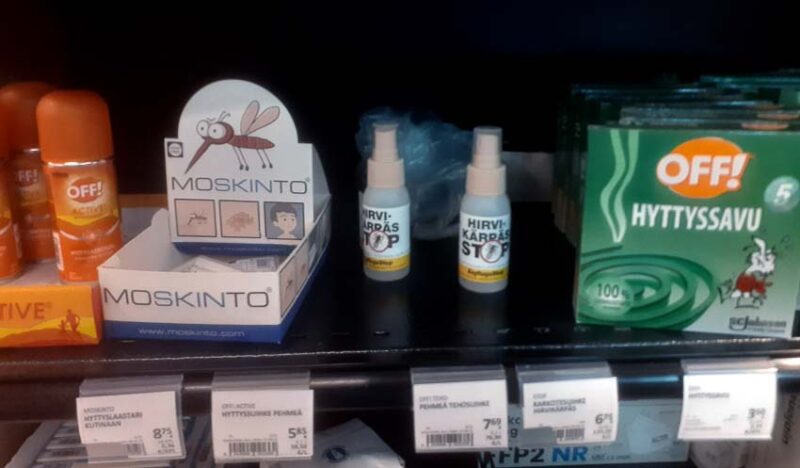
For something a little stronger, you can use a synthetic repellent to get rid of mosquitoes. You can buy these from most grocery stores and drug stores, and they usually contain DEET, Picaridin, or Permethrin. While they’re not as eco-friendly as natural or homemade repellents, they’re usually much more effective at repelling mosquitoes.
These store-bought topical repellents confuse mosquitoes’ homing systems by not allowing them to detect human breath, body odor, or lactic acid. Most of these types of repellents last for around six to twelve hours and come in the form of sprays, lotions, gels, and roll-ons.
You can also get a store-bought mosquito repellent for use in your yard. Common treatments can remain effective for several days, and some even double as repellents for ticks and other insects.
Best Practices for Effective Mosquito Control
Other best practices for controlling mosquitoes include eliminating extra moisture in your yard with proper drainage and landscaping techniques. Let’s delve into some common areas of improvement to help rid your yard of mosquitoes.
Maintaining Proper Drainage to Prevent Mosquito Breeding
When it rains, a significant amount of water can come off your roof onto your property. To eliminate the chance of standing water on your lawn, it’s necessary to control stormwater to prevent mosquitoes from breeding.
To reduce the chances that water will pool up in your yard, you can install an active rainwater collection system using rain barrels, a passive system using dry creek beds, or a combination of both. If you choose the former, be sure to apply screens to keep mosquitoes away from standing water.
You can also use larvacides in any open water sources to get rid of mosquitoes.
How to Get Rid of Mosquitoes with Landscaping
Getting rid of mosquitoes on your property means making your yard less attractive to them. Here are some things you can do to your landscaping to minimize mosquito infestations:
- Take out windscreens and prune back trees and shrubs to make it harder for them to fly around in your yard.
- Drill drain holes in trash cans and other containers that need to stay in your yard.
- Trim back hedges, shrubs, and trees, and keep your lawn trimmed neatly to reduce the amount of greenery and shady areas where mosquitoes like to hide.
You can also rearrange the plants in your yard, putting fragrant plants in frequently-used areas and large shrubs further away. Many fragrant plants are mosquito repellents, and they pose added benefits to humans, such as herbs for culinary use and flowers for aesthetics.
Frequently Asked Questions

Q1: What are the Best Natural Mosquito Repellents?
Essential oils are commonly used to make effective mosquito repellents. You can experiment with different oils and blends to find the type that works best for you. Oils can be diffused or used in incense or candles to keep mosquitoes at bay.
Q2: Do Mosquito Traps Really Work?
While mosquito traps are effective at luring in and killing mosquitoes, they aren’t 100% effective at keeping them out of your yard. Instead, use traps in combination with other methods of elimination, and place traps at strategic locations, such as around the edges of your property.
Q3: How Long do Repellents Help Get Rid of Mosquitoes?
Different mosquito repellents are effective for different amounts of time. Chemical treatments can last up to a couple of months, but the type you use on your clothes and body usually only lasts around six hours.
Q4: Can Mosquitoes Breed in Small Amounts of Water?
Mosquitoes lay hundreds of eggs at a time, and only require a small amount of water to breed and thrive. Some types of mosquitoes only require 1/4-inch of water to lay their eggs— enough to fit in a bottle cap. While eggs can survive being dried out, the larvae can’t.
Q5: What Attracts Mosquitoes to Humans?
Mosquitoes are attracted to human scents and temperatures, but they are primarily attracted to the carbon dioxide that people and animals exhale. While only females draw blood after biting, both female and male mosquitoes are attracted to people.
Related Content
How Much Should You Spend on Lawn Care?
Choosing the Best Type of Lawn Mower
Sprinkler Installation Costs – The Ultimate Guide

